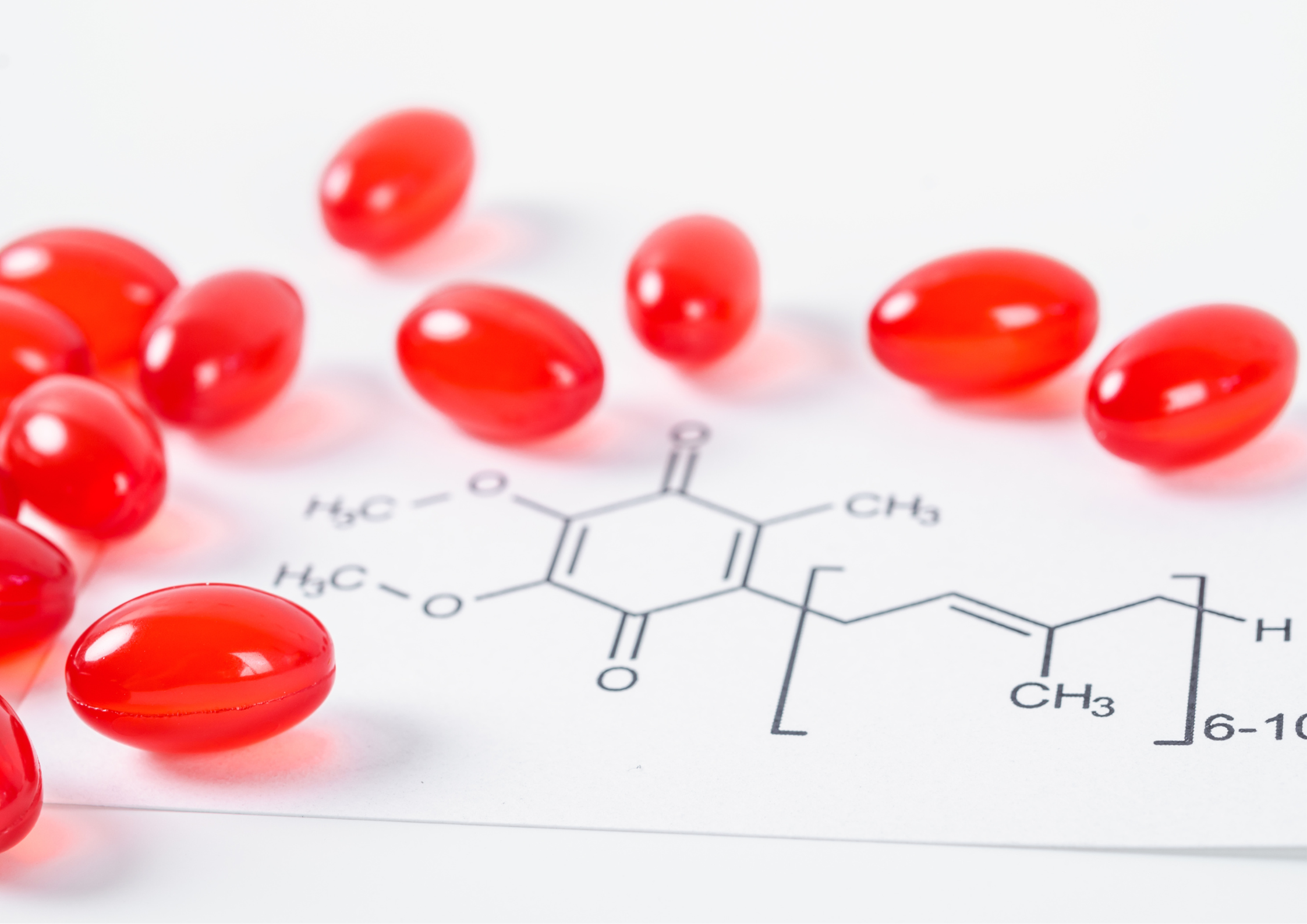Who or what is a CoQ10?
Written by
Kimberly Lush & Jonathan Steedman
This is short. If you’ve got an attention span like me, you’re welcome, and if you like long form stuff… maybe just read it a couple of times? There wasn’t much to say, and I didn’t want to pad it out because no uni = no word count.
ANYWAY.
Coenzyme Q10, more formally known as ubiquinone, is a cofactor that is found in almost all foods, naturally produced by the body and unnaturally produced by millions of supplement companies.
Its primary role is as a catalyst in the electron transport chain, essentially allowing this vital system to continue to make the ATP required by the body. ATP is the energy currency on which the cells in our body run so… it’s kind of important. It’s this role that has sparked the interest in Q10’s potential use in patients with heart failure and coronary heart disease, disease states that are both characterised by reduced energy availability due to metabolic changes in the skeletal and cardiac muscle.
Q10 can also act as a potent antioxidant, and may modulate the expression of a number of genes linked to inflammation. This has led to further investigation of Q10 supplementation’s impact on both endurance exercise and general health.

01
Inflammation
There is some evidence to suggest that Q10 supplementation may reduce some widespread markers of inflammation such as TNF-a, CRP and IL-6 (they’ve got big names, don’t worry about them) but a.) there is also conflicting evidence that suggests Q10 supplementation has no effect and b.) most importantly any effect only seems to occur in patients who already have a high level of baseline inflammation, something that’s extremely common in most disease states. In groups of people that are otherwise healthy, Q10 supplementation appears to have no impact on their baseline markers of inflammation.
02
Exercise
Q10’s benefit for endurance exercise is equally disappointing. Although a large spike in inflammatory markers and a reduction in skeletal muscle Q10 is a common byproduct of endurance exercise, supplementation does not appear to have any marked effects. Some studies do report a reduction in inflammatory markers, but fail to find any noticeable increase in performance or power output. This is disappointing, but at least now you can save a bit of cash…
03
Heart health
The news is a little bit better when it comes to heart health, but with one caveat: any potential benefits seem to be limited to groups that are already experiencing heart failure or coronary heart disease. Low plasma Q10 concentrations are correlated with advanced heart disease so, on the surface, Q10 supplementation to remedy this deficiency makes sense. A rather large meta-analysis published in 2017 did find Q10 supplementation may decrease mortality and increase exercise capacity in patients with heart failure but, as of yet, there is still too much conflicting evidence to allow for anything approaching actual guidelines.
04
Fertility
I’m sure you’ve probably heard that our fertility decreases as we age. Unfortunately, this is true. Research suggests that one of the key reasons why our fertility decreases with age is the reduced mitochondrial functioning, which results in lower quality and quantity of eggs available for fertilisation, and poor sperm motility (aka the ability for sperm to move!) Mitochondria are tiny organelles found in all of the cells in your body - think of them like the cell battery. If the batteries of our cells (including eggs and sperm) are running low, it’s harder to conceive. Emerging research suggests that CoQ10 supplementation may boost the mitochondrial function within the eggs and sperm to limit oxidative damage and reduce cell death. However, this supplement isn’t for everyone. When young, ovaries actually produce quite high levels of CoQ10, so this supplement is only relevant if you’re a woman over the age of 35, or you’re a man with poor sperm motility.
So there you have it! Although there is a little bit of promise in the treatment of heart failure and certain fertility scenarios, there’s not much more exciting news anywhere else I’m afraid. Looks like I’m not getting a Swisse sponsorship anytime soon…

Thanks for reading! Why not subscribe to our mailing list for more great content.

